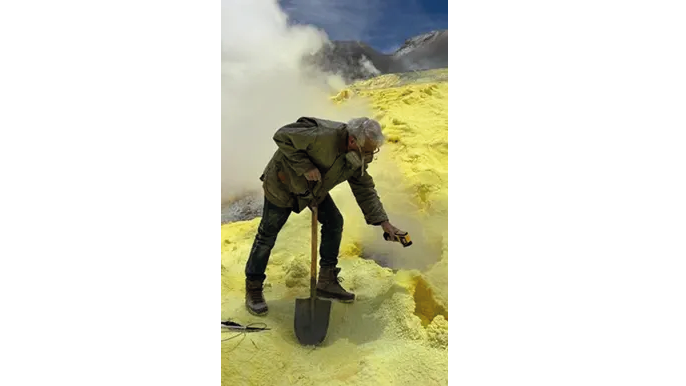Gas Analysis
Contact:
Web:
Infrastructure belongs to:
Gas geochemistry is an essential aspect in many areas of research, such as volcanology, environmental research and raw materials exploration.
The GFZ's Gas Geochemistry Laboratory (GGL) routinely analyzes most permanent gases. In addition to the gas phase from various sources, process gases (e.g. corrosion and hydrolytic H₂ in boreholes) and synthetic tracer gases (e.g. SF₆) can also be analyzed.
On-site gas sampling (boreholes, active volcanic areas, cave systems, underground salt and gold mines, CO₂ sequestration sites and areas with natural hydrogen emissions) makes up a large part of the GGL team's work. The installation and maintenance of permanent gas measuring stations is also part of the GFZ GGL's work.
Categories
Disciplinary Keywords
Instrumentation
A large number of gas analyzers and a wide range of gas separation methods are available.
-
Several quadrupole mass spectrometers (Omnistar, Pfeiffer Vacuum) and a mobile field device (Mini Ruedi, Gasometrix).
-
Gas chromatographs (SRI 8610), equipped with various separation columns and detectors (FID, TCD, HID).
-
Photoacoustic sensor (Innova 1412, Air Tech Instruments) for measuring CO₂, CH₄, H₂ and H₂S in the µmol/mol range and SF₆ in the nmol/mol range.
-
Toxic Vapour Analyzer (TVA, Thermo Fisher Scientific (portable GC for hydrocarbons)
-
Alpha Guard (Bertin Technologies) for radon
-
Li-COR accumulation chamber systems (Li 8250-M4 multiplexer with LI 8100 and LI-7810 trace gas analyzer) for CO₂ and CH₄ flux measurements
Instruments
-
Gas Chromatograph
Gas chromatography - specifically gas-liquid chromatography - involves a sample being vapourised and injected onto the head of the chromatographic column. The sample is transported through the column by the flow of inert, gaseous mobile phase. The column itself contains a liquid stationary phase which is adsorbed onto the surface of an inert solid. (Source: Global Change Master Directory (GCMD). 2023. GCMD Keywords, Version 16.3. Greenbelt, MD: Earth Science Data and Information System, Earth Science Projects pision, Goddard Space Flight Center (GSFC) National Aeronautics and Space Administration (NASA). URL (GCMD Keyword Forum Page): https://forum.earthdata.nasa.gov/app.php/tag/GCMD+Keywords)
-
Gas Chromatography Flame Ionization Detector
Gas Chromatography - Flame Ionization Detector or GC-FID is a common analytical technique that is widely used in the petrochemical, pharmaceutical and natural gas markets. A flame ionization detector (FID) is a scientific instrument that measures the concentration of organic species in a gas stream. It is frequently used as a detector in gas chromatography. An FID typically uses a Hydrogen/Air flame into which the sample is passed to oxidize organic molecules and produces electrically charged particles (ions). The ions are collected and produce an electrical signal which is then measured. (Source: Global Change Master Directory (GCMD). 2023. GCMD Keywords, Version 16.3. Greenbelt, MD: Earth Science Data and Information System, Earth Science Projects pision, Goddard Space Flight Center (GSFC) National Aeronautics and Space Administration (NASA). URL (GCMD Keyword Forum Page): https://forum.earthdata.nasa.gov/app.php/tag/GCMD+Keywords)
-
Mass Spectrometer
Mass spectrometers are spectrometers that deal mainly with mass or quantitative amount such as weight in a gravitational field. (Source: Global Change Master Directory (GCMD). 2023. GCMD Keywords, Version 16.3. Greenbelt, MD: Earth Science Data and Information System, Earth Science Projects pision, Goddard Space Flight Center (GSFC) National Aeronautics and Space Administration (NASA). URL (GCMD Keyword Forum Page): https://forum.earthdata.nasa.gov/app.php/tag/GCMD+Keywords)
Relationships
- is part of

